Bengal alpona, "Books and references"
A selection of books on alpona written by researchers, alpona artists, and art lovers. Some paintings inspired by alpona.
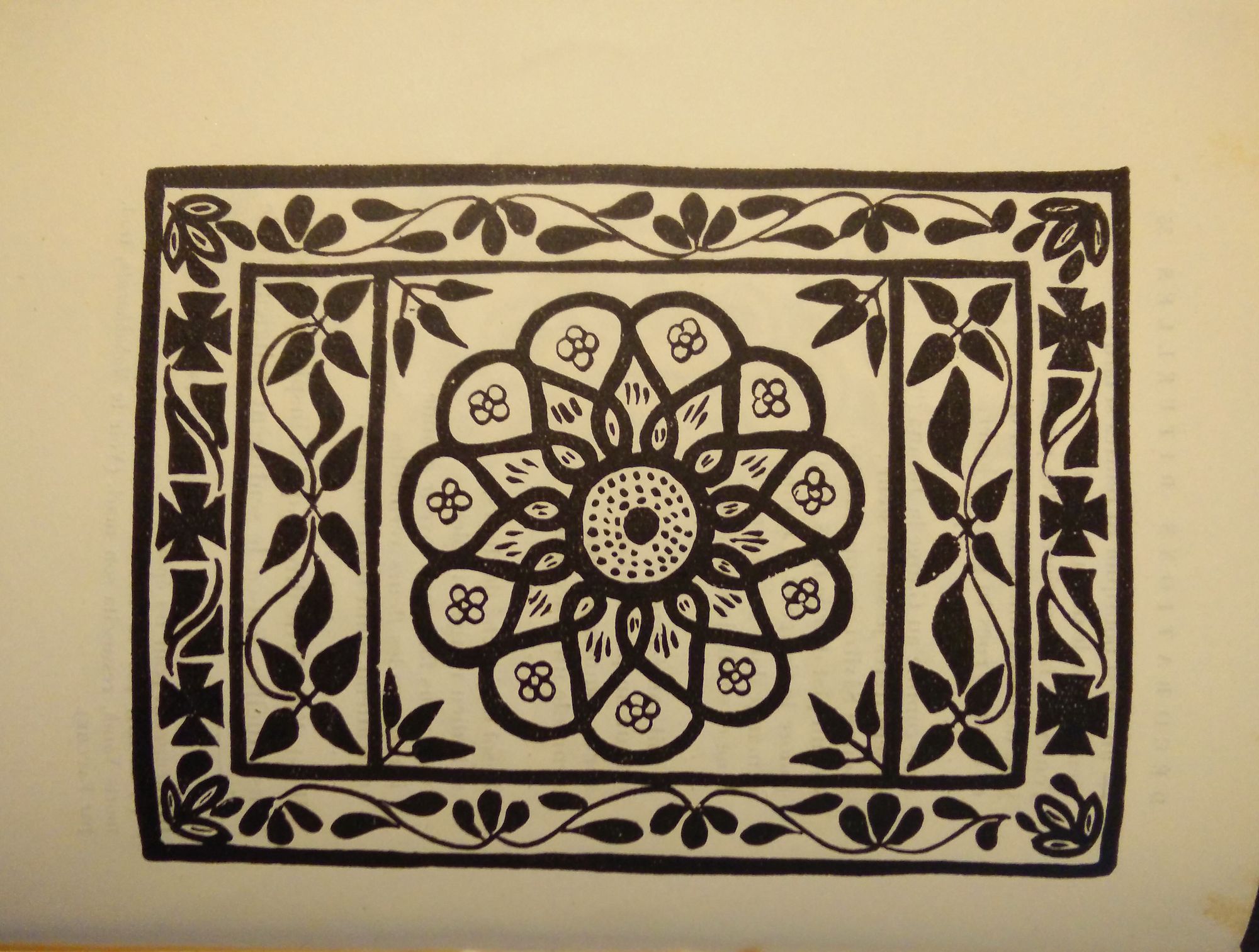
KOLKATA: It was at Kala Bhavan that the idea of including alpana as part of the fine arts syllabus germinated, through a series of workshops that Rabi Biswas was called in to conduct. Biswas, in fact, has been crusading to revive folk alpana, with foundations like Daricha and Intach playing a key role.
Books
Tapan Mohan Chatterji, Alpona, Orient Longmans LTD, 1948, English
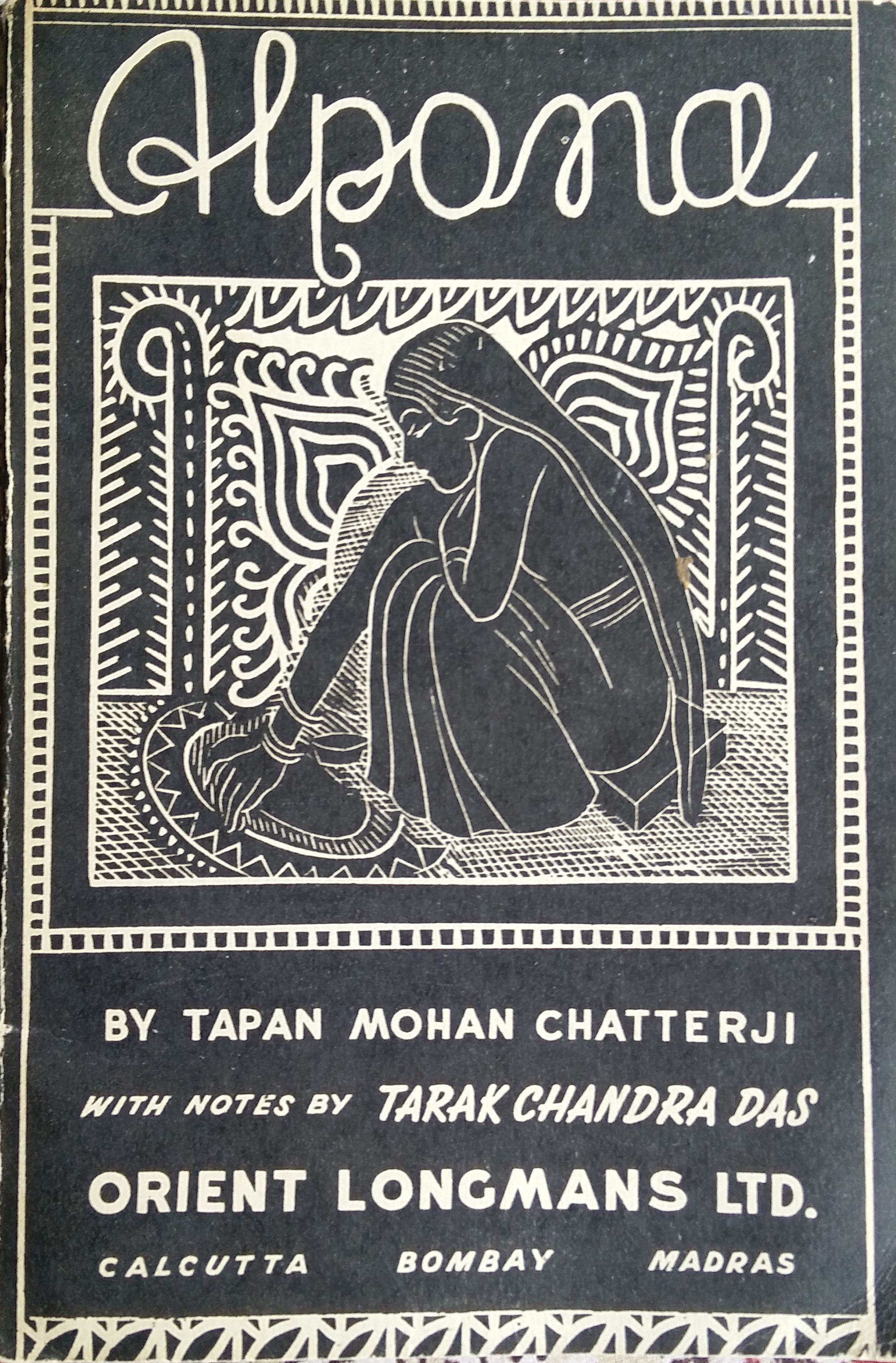
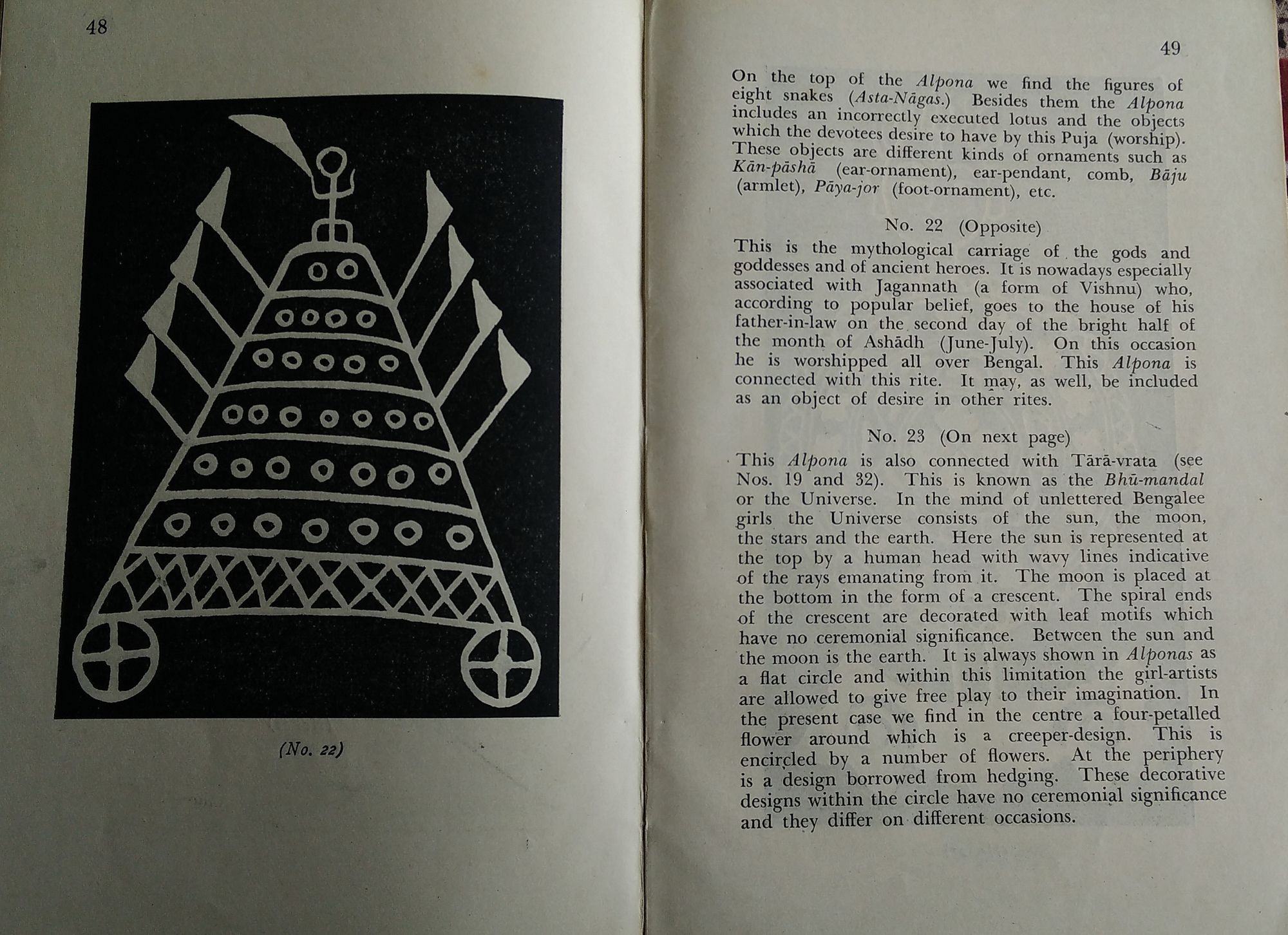
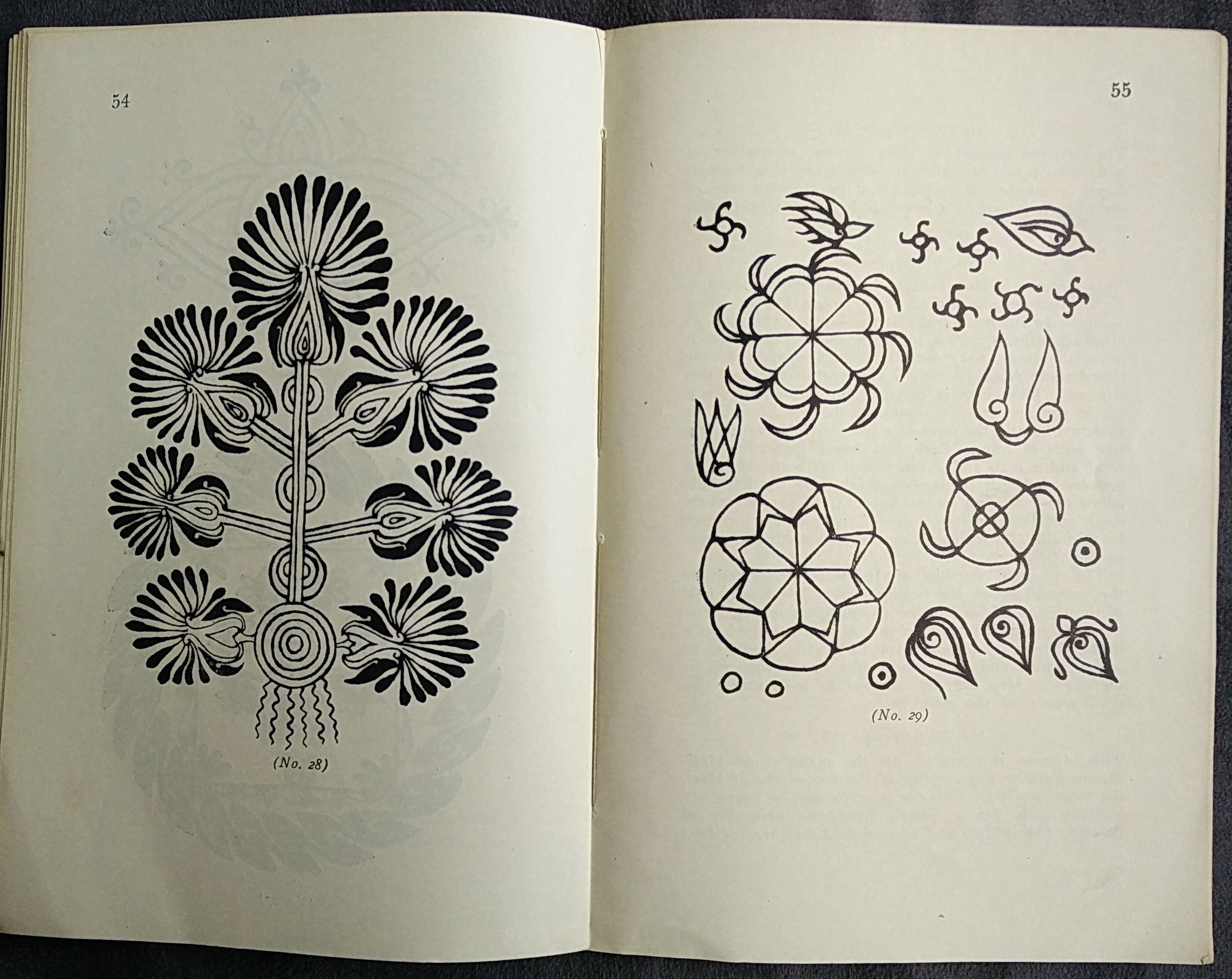
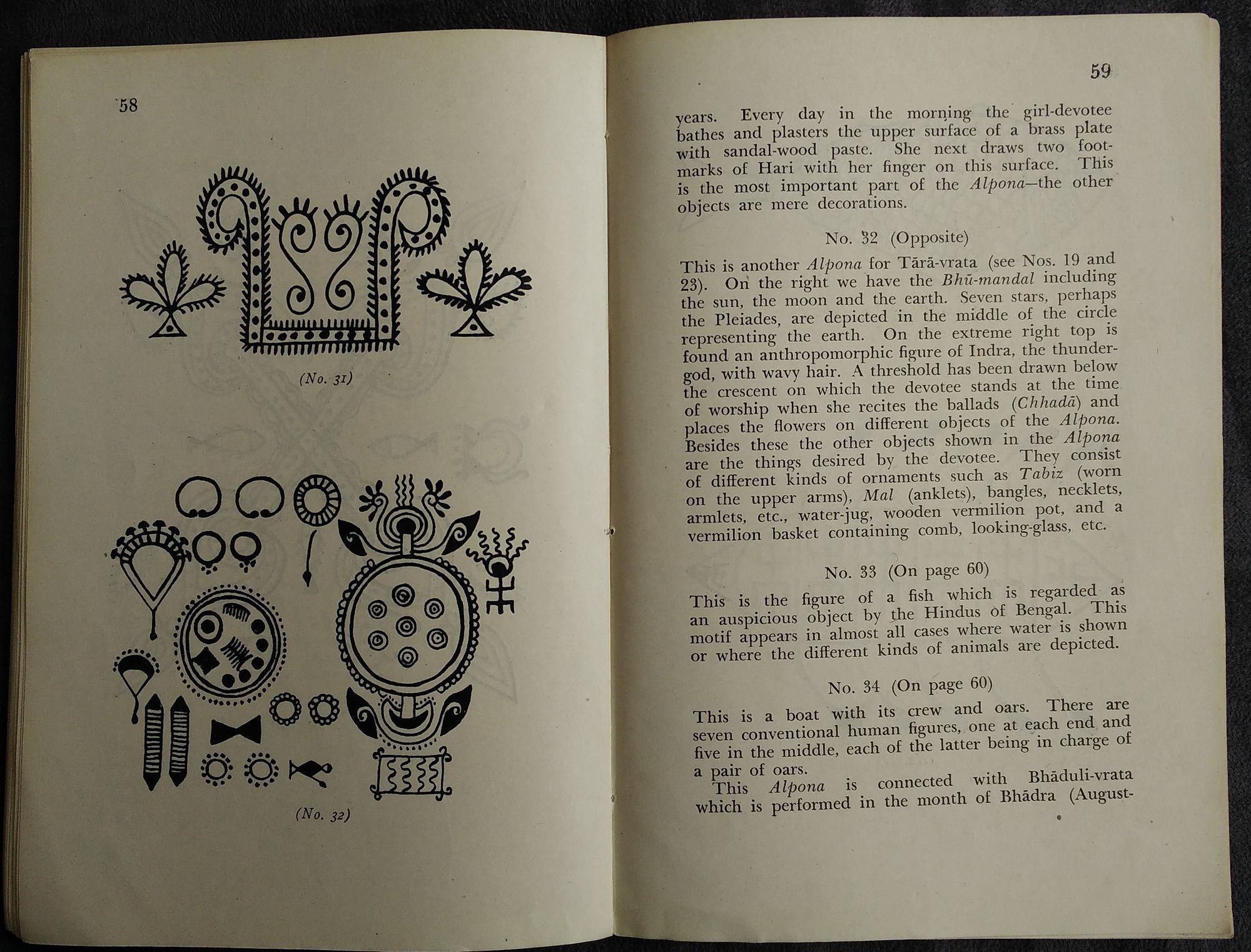
Abanindranath Tagore, l’Alpona ou les décorations rituelles au Bengale, Editions Bossard, Paris, 1921. (French)

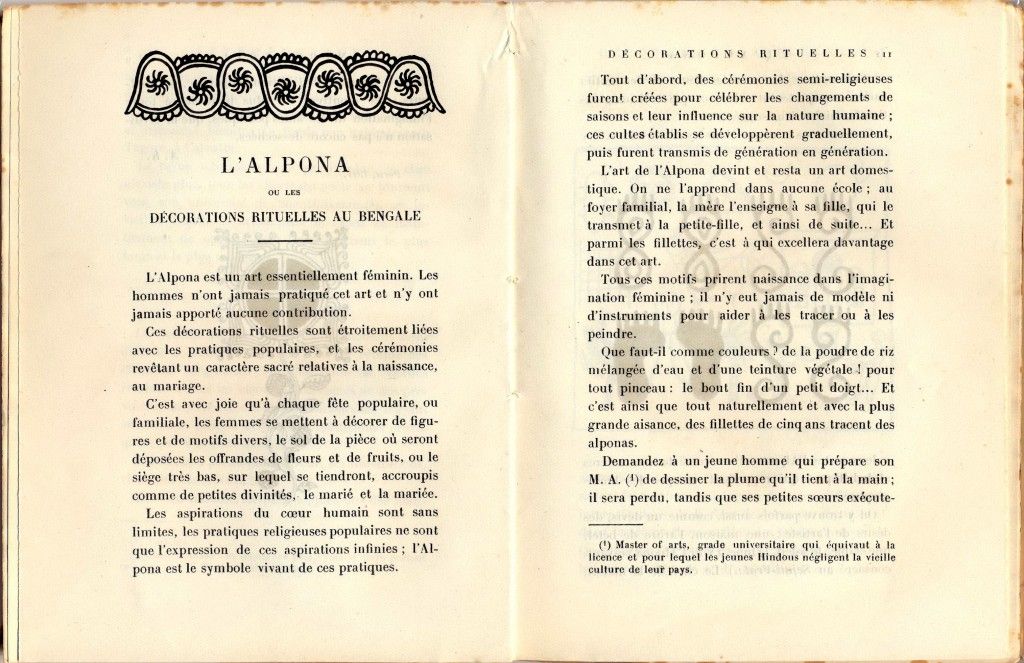
Prativa Bala Bardhan, Alimpan, 1962, Bengali and English
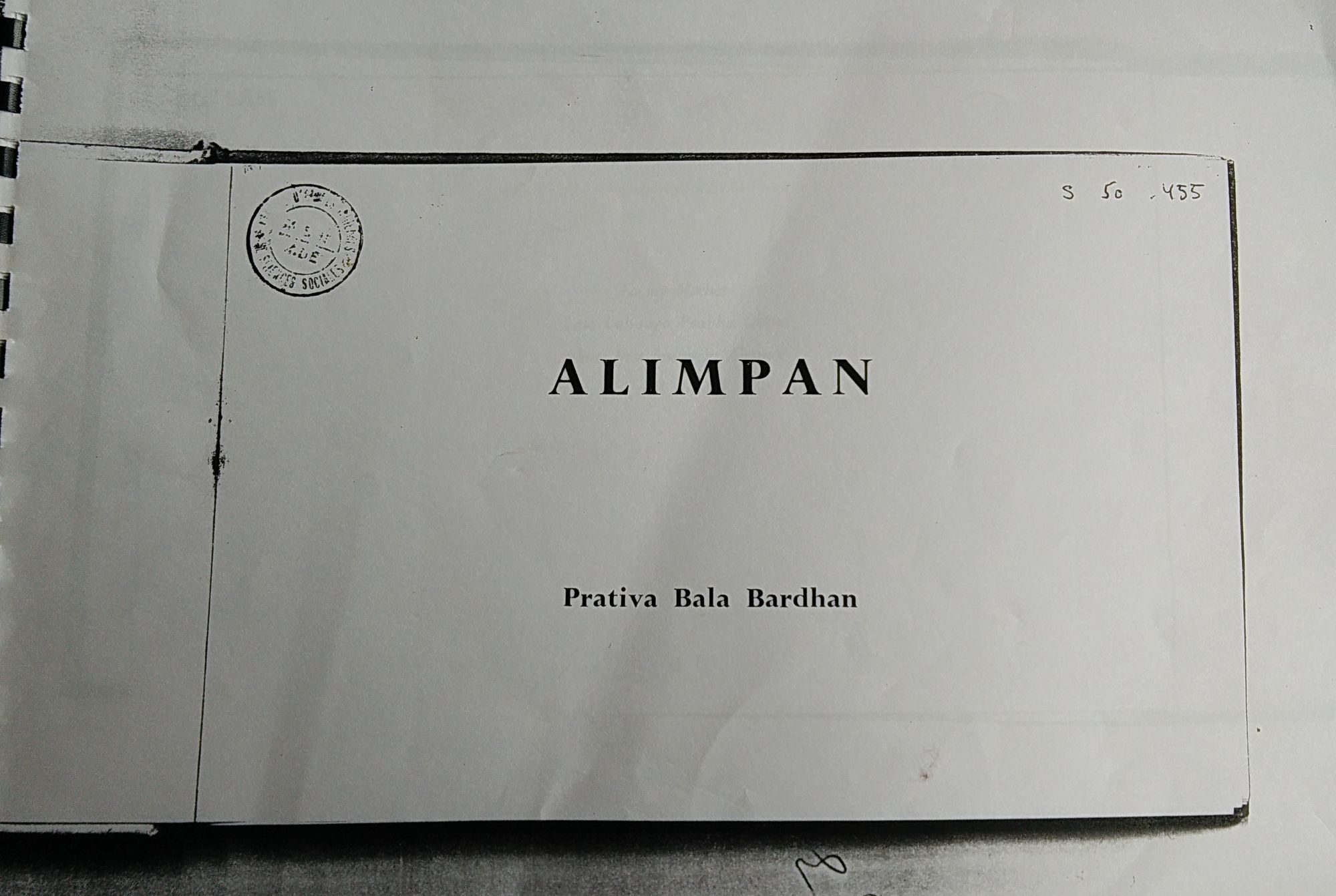
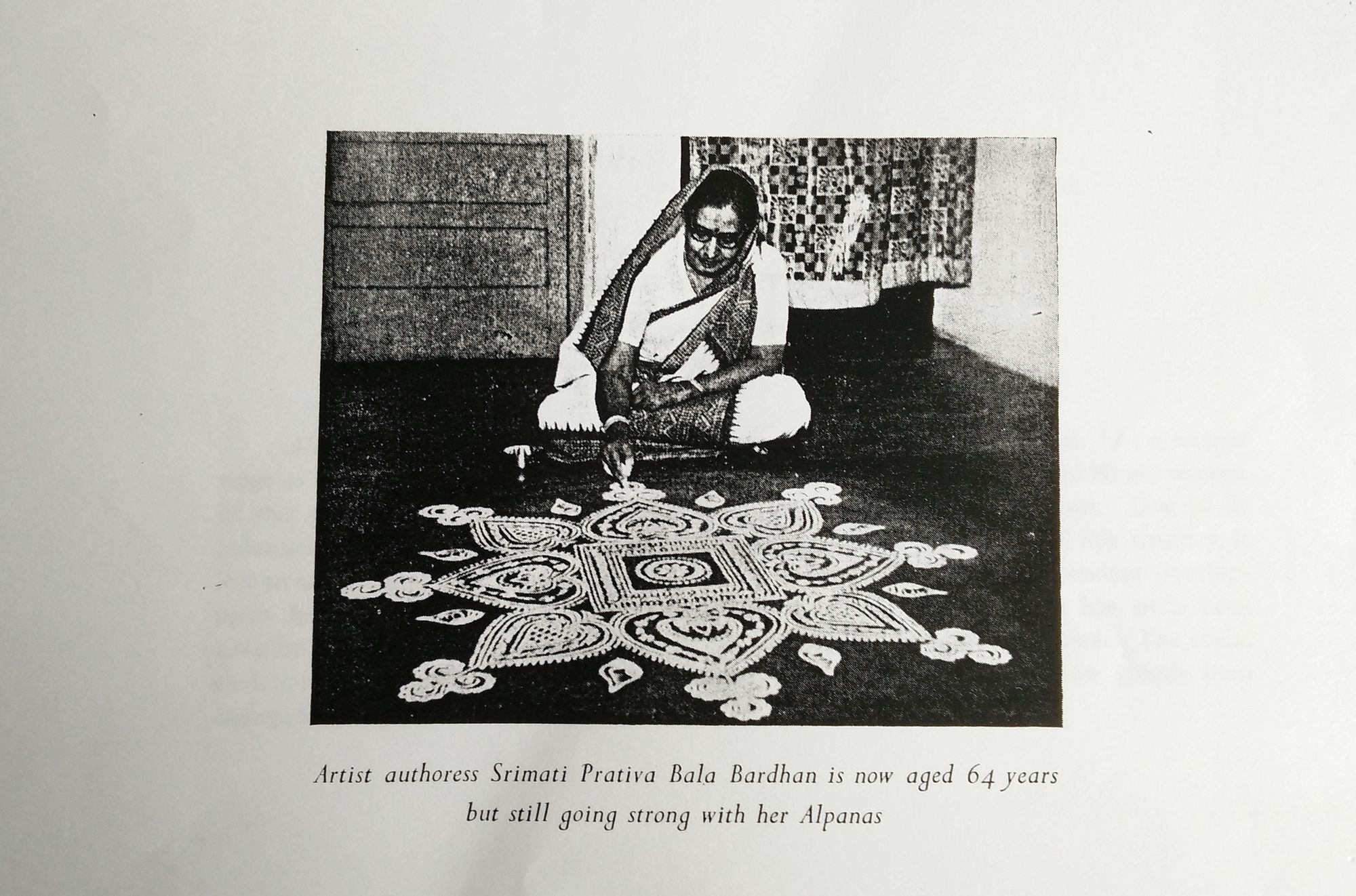
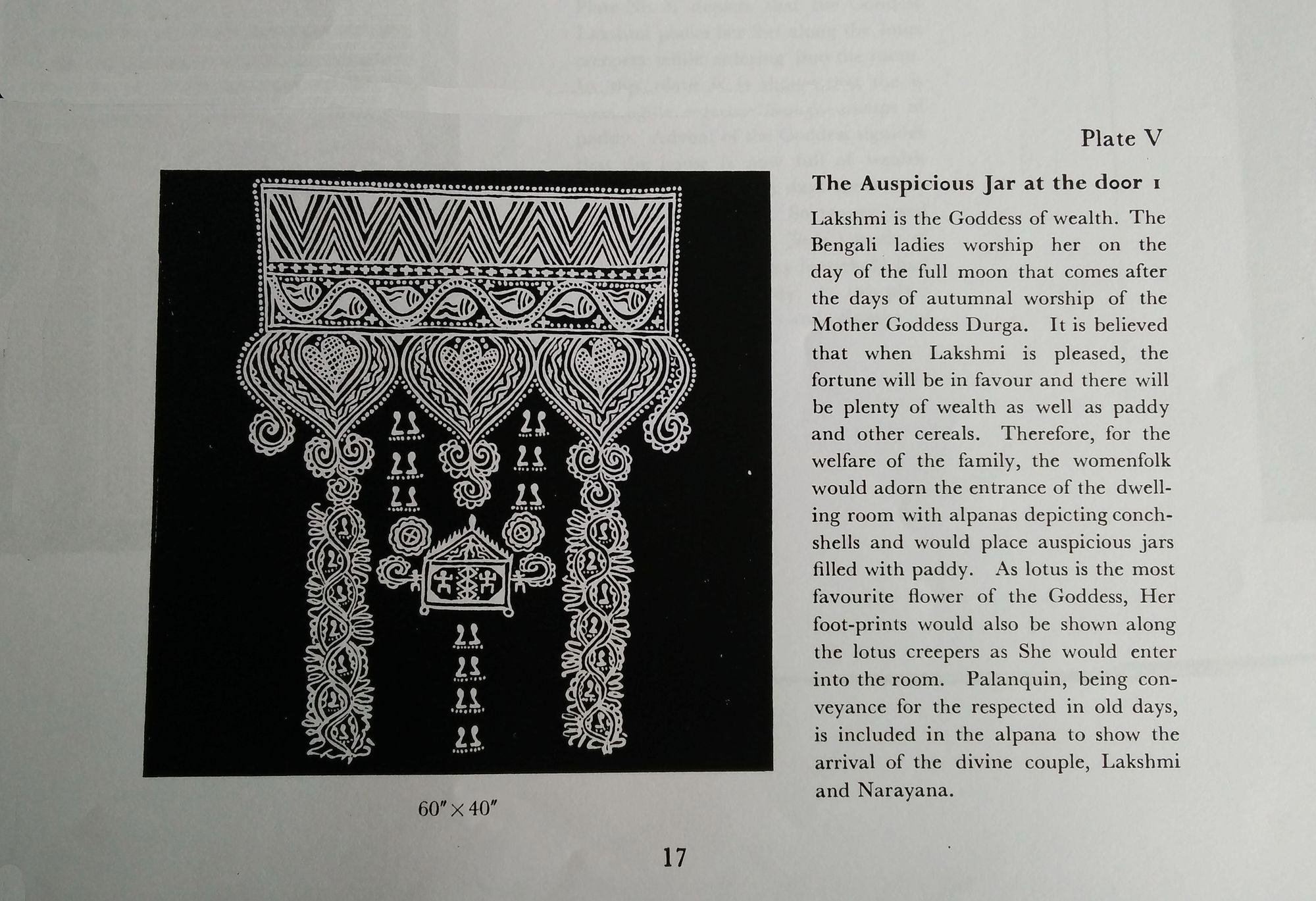
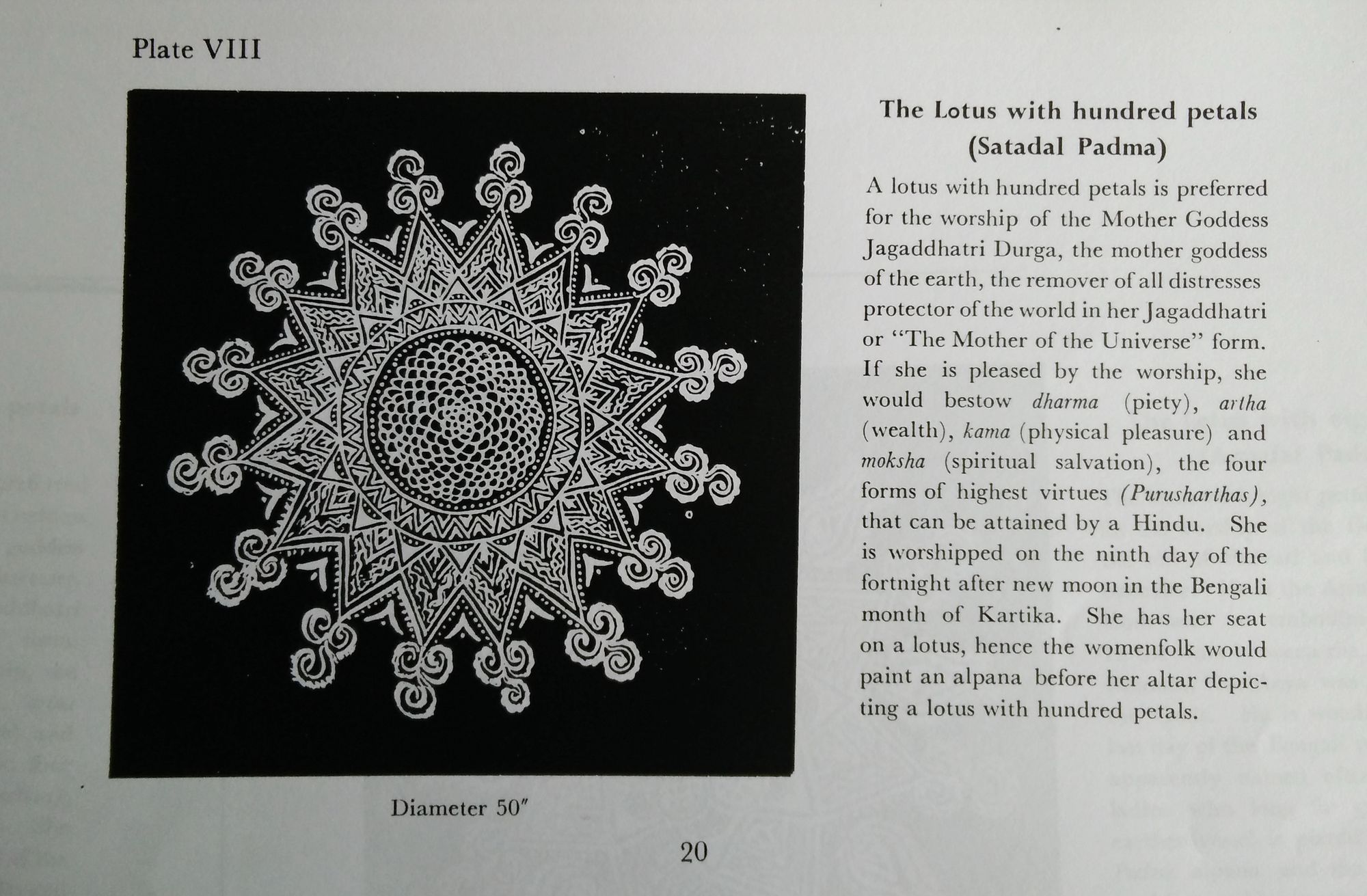
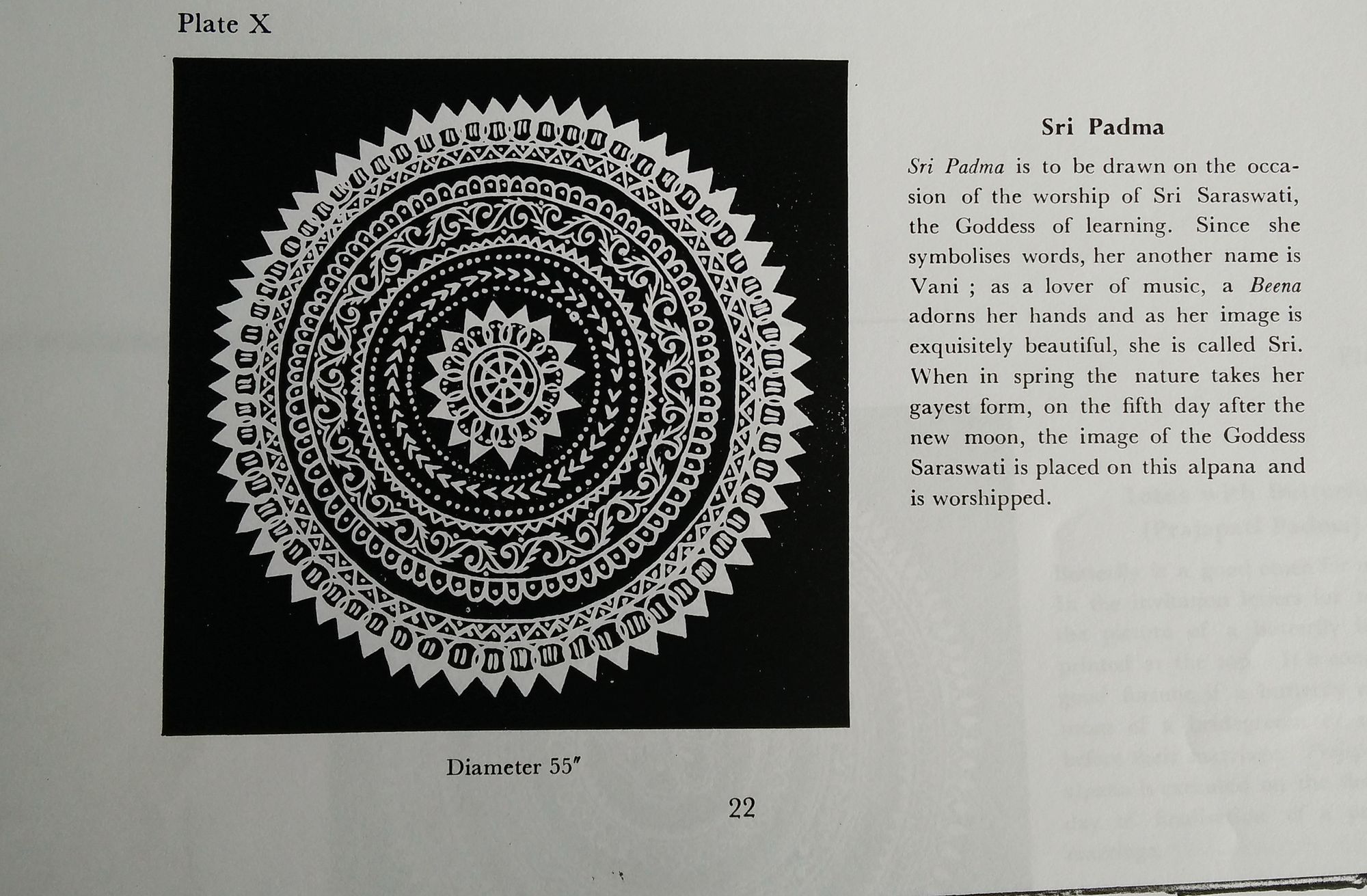
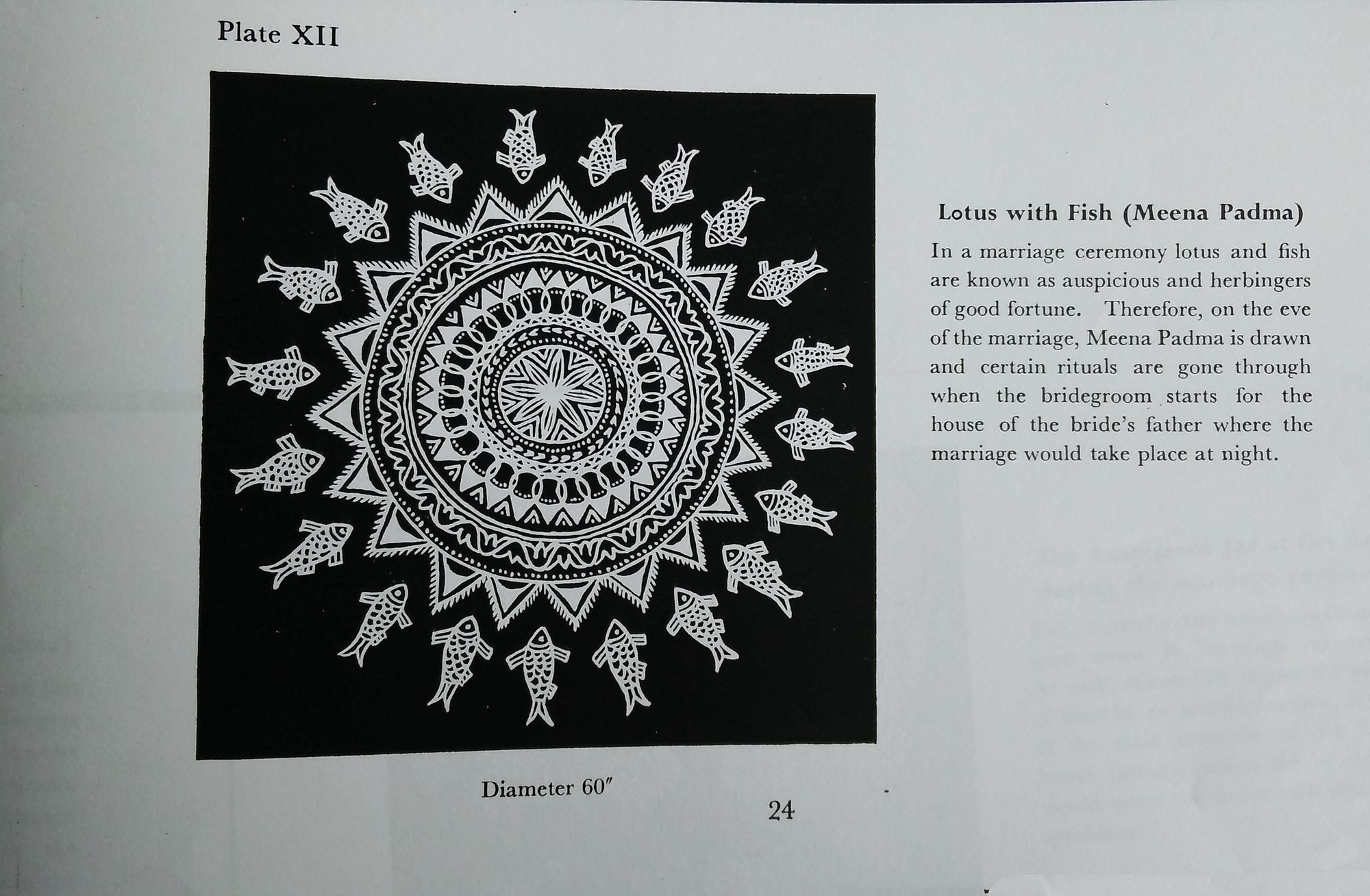
Eva Maria Gupta, Brata und Alpana in Bengalen, 1983, German
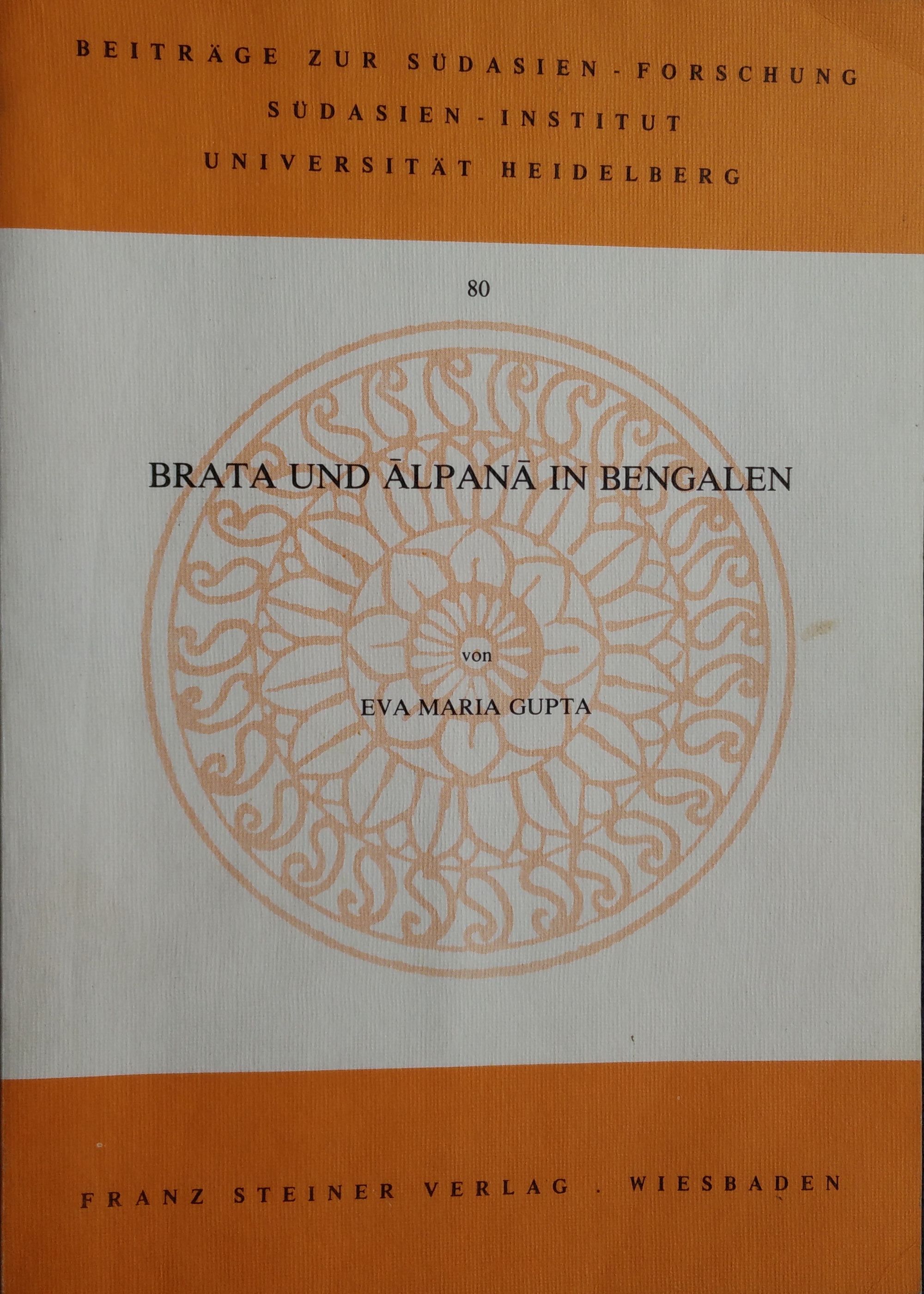
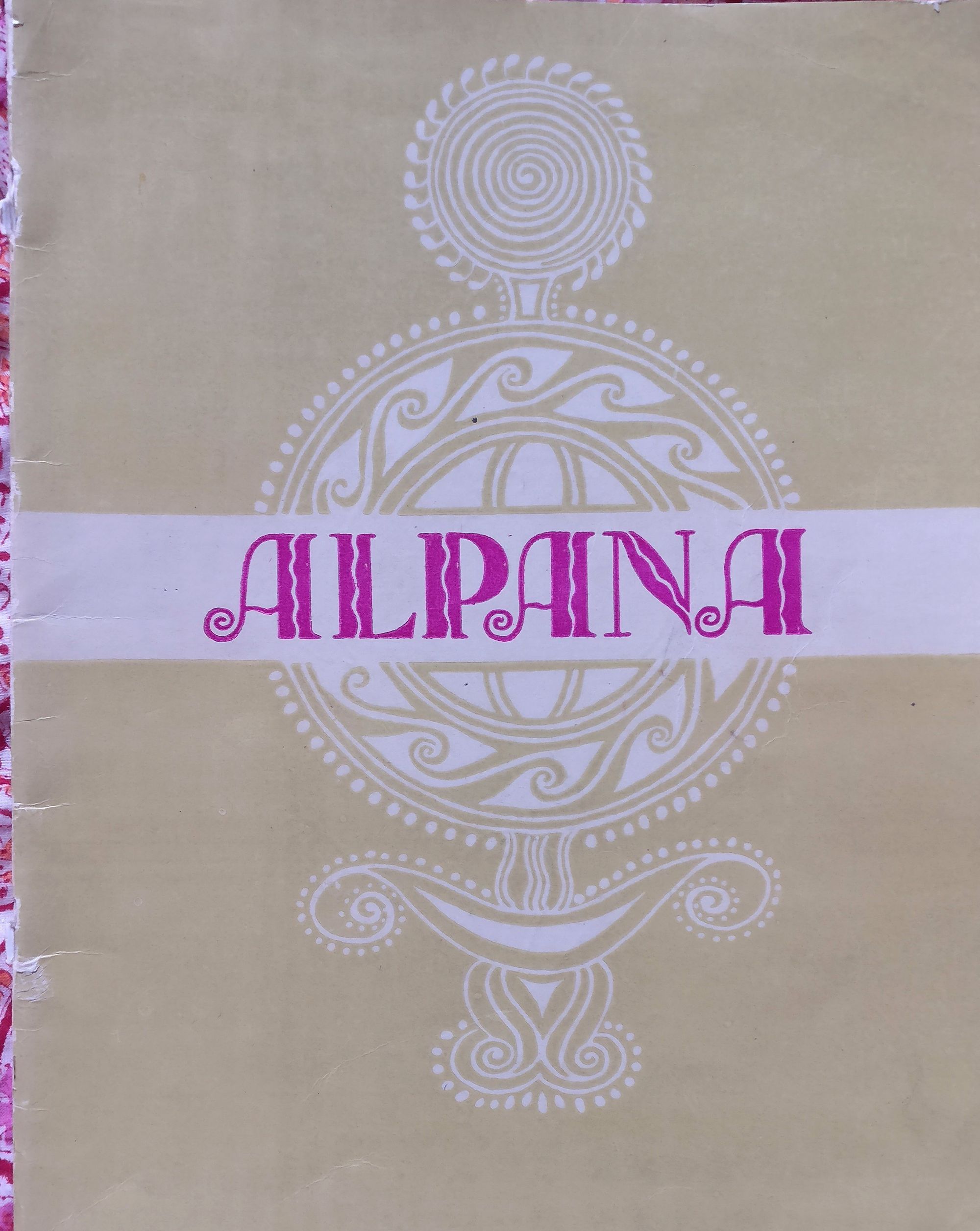
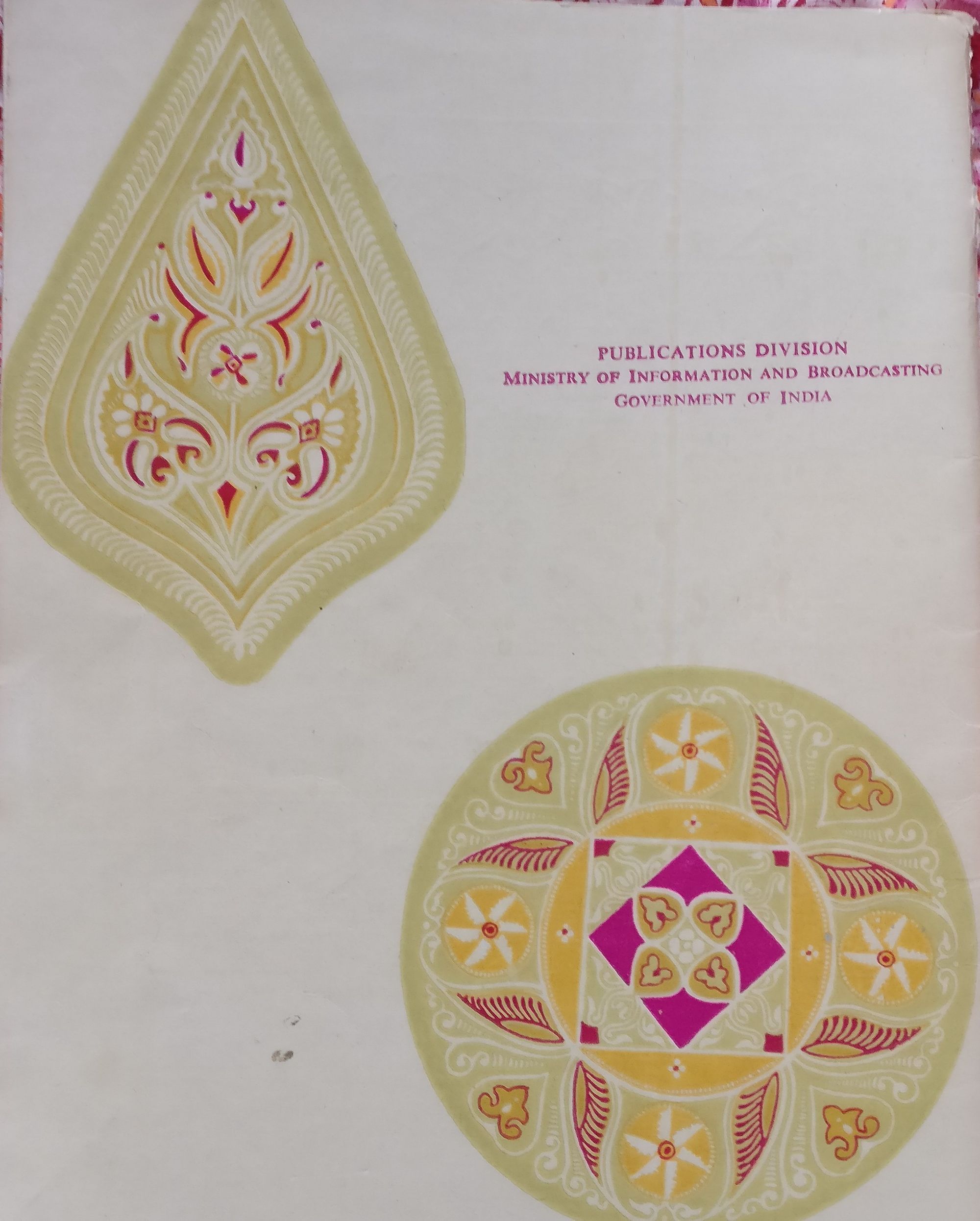
Abanindranath Tagore, Banglar Brata, Introduction and annotations by Dibyajyoti Majumodar, Gangchil Publications, Kolkata, Novembre 2014
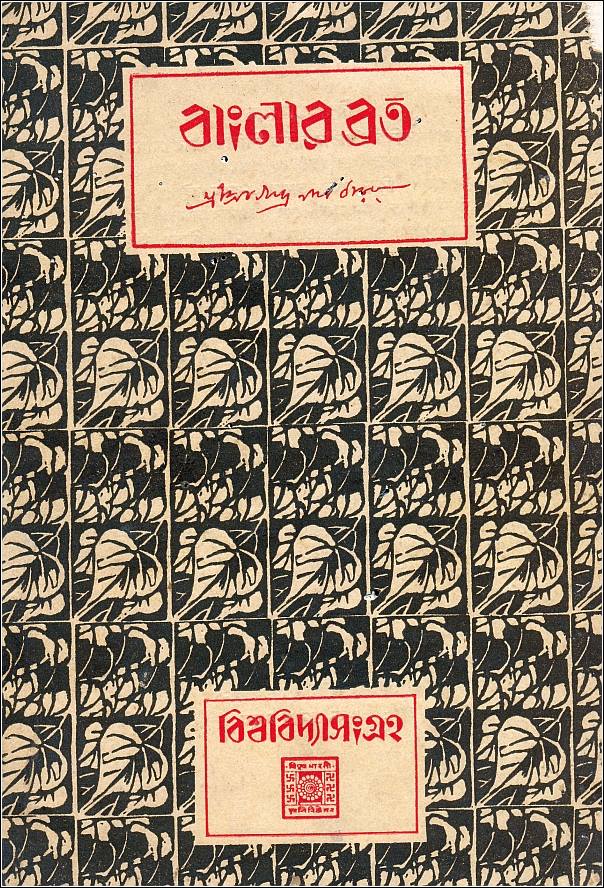
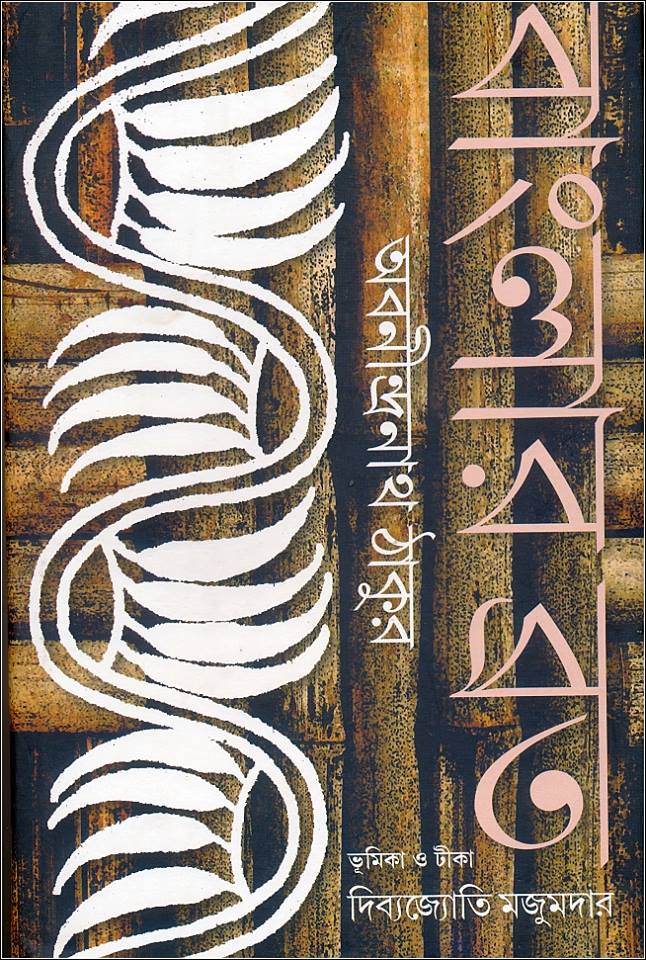
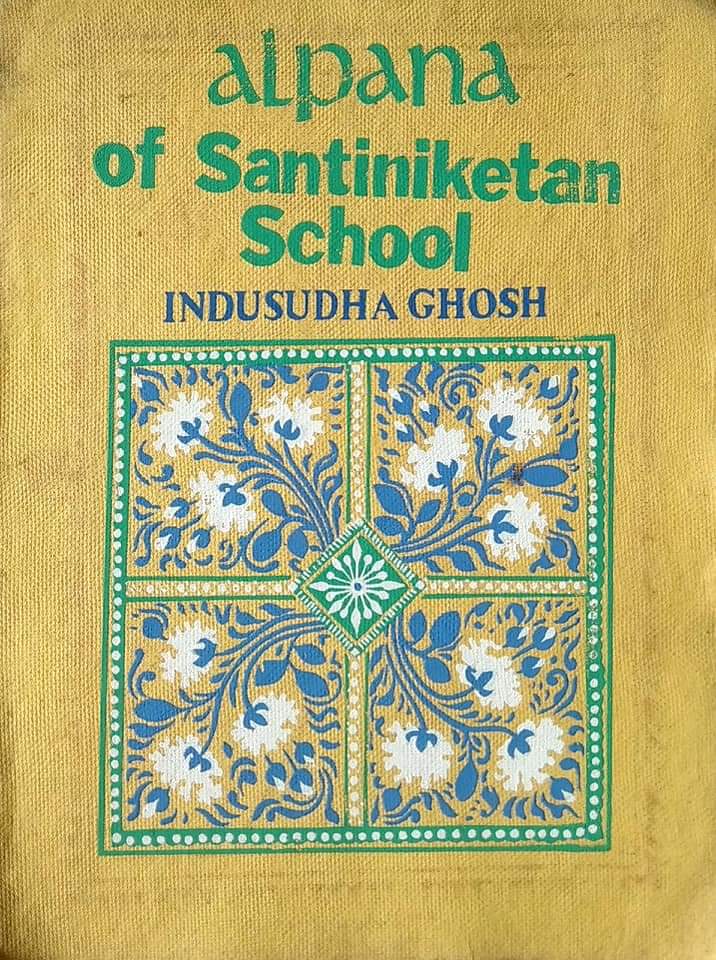
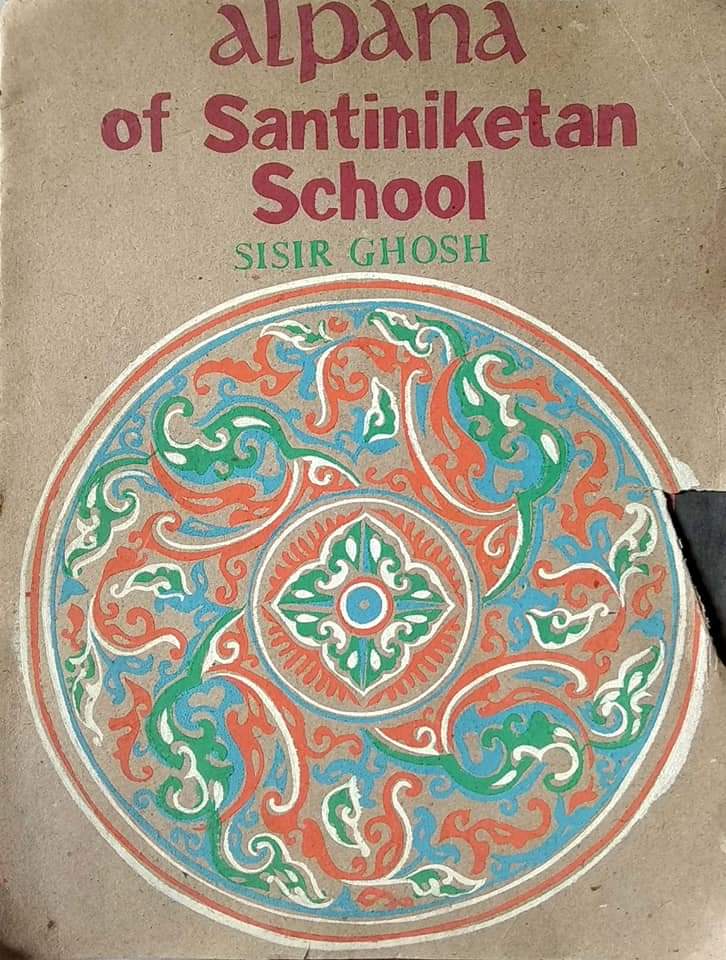
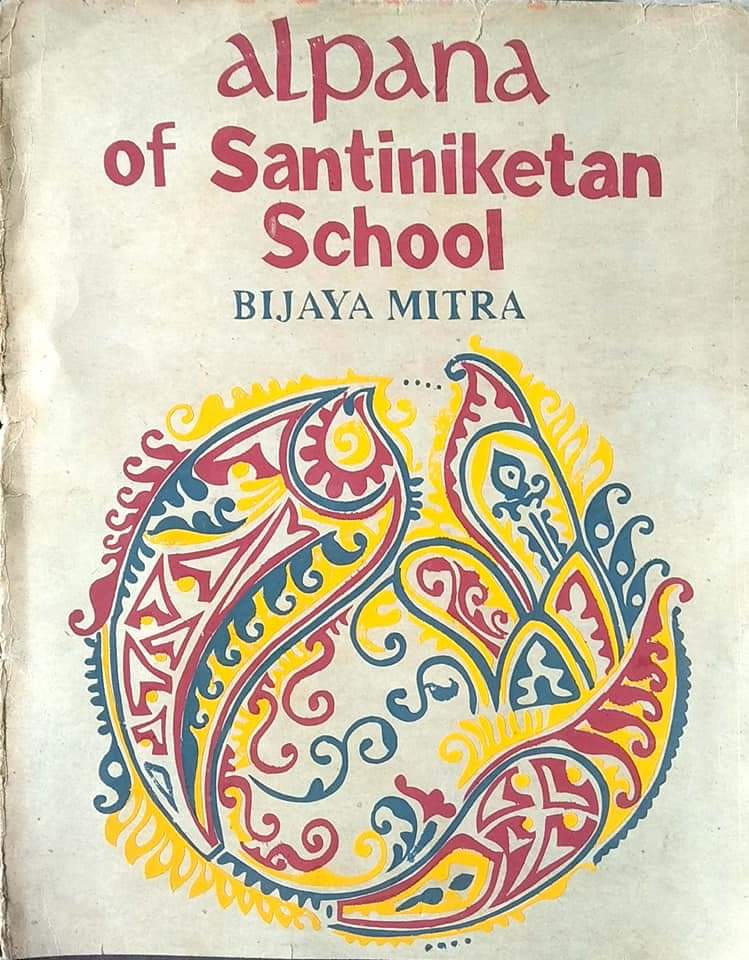
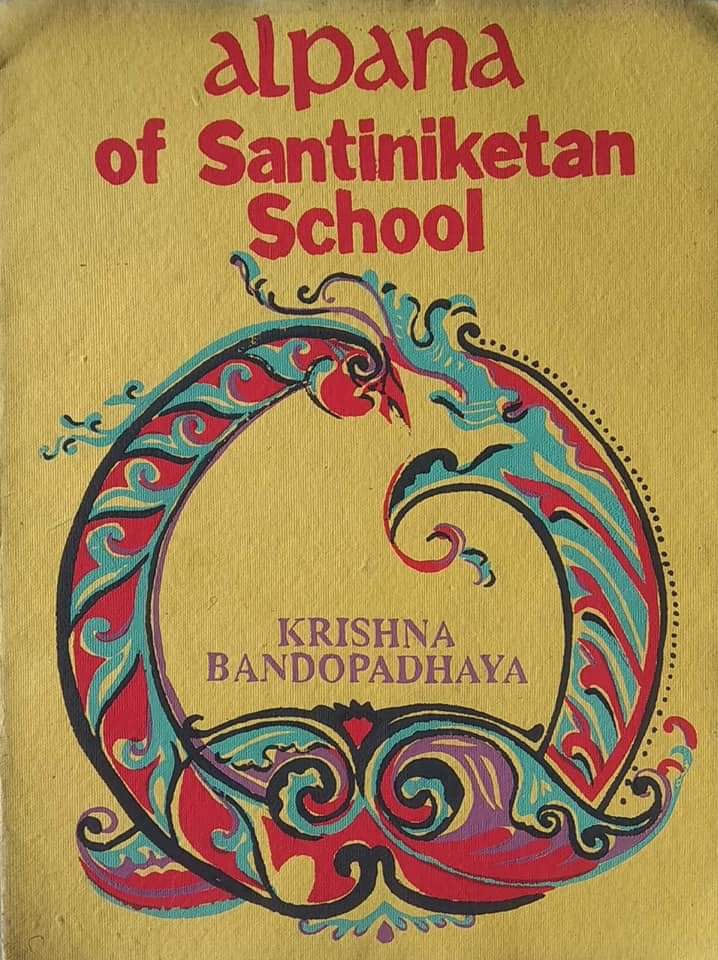
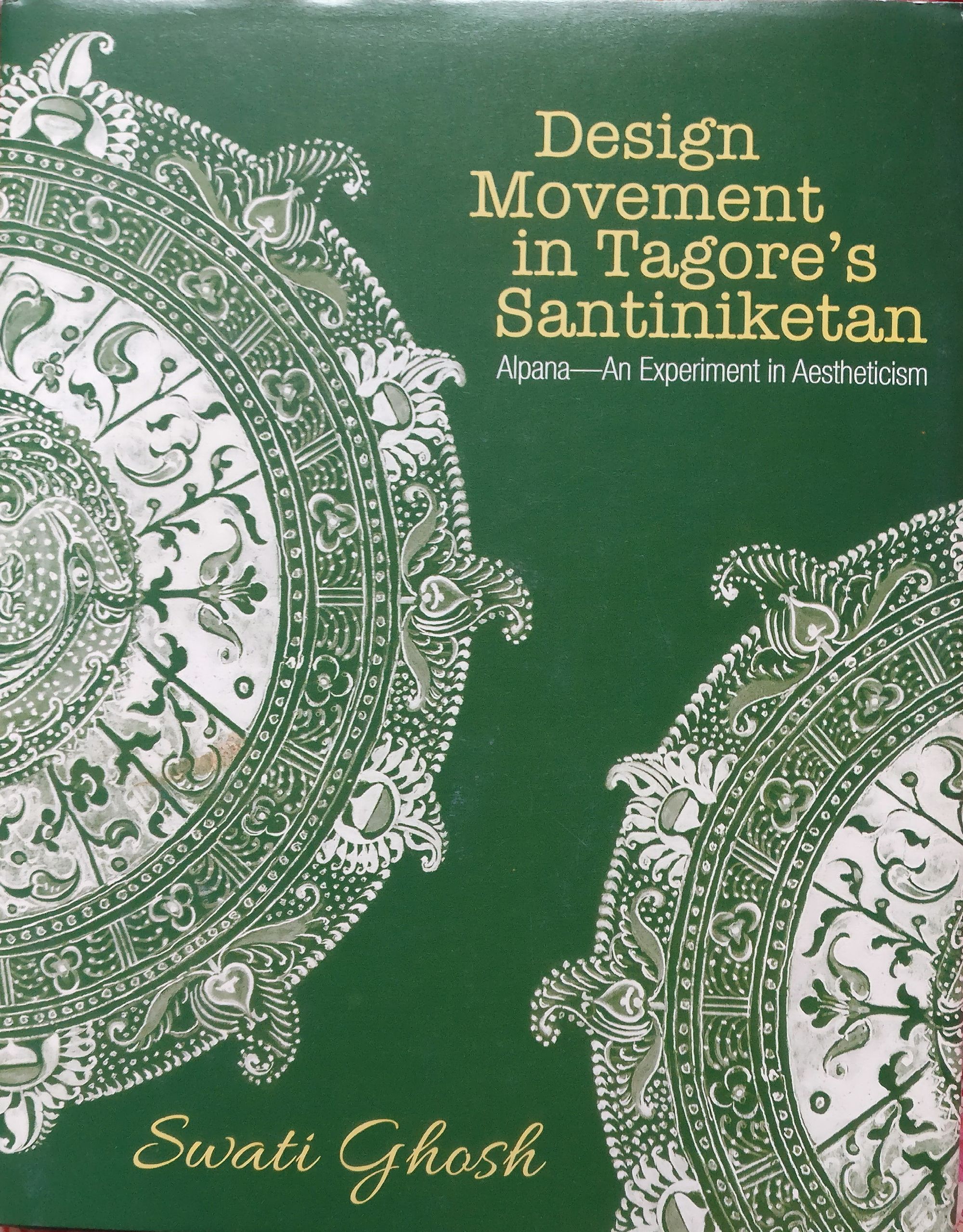

Paintings inspired by alpona
Nandalal Bose
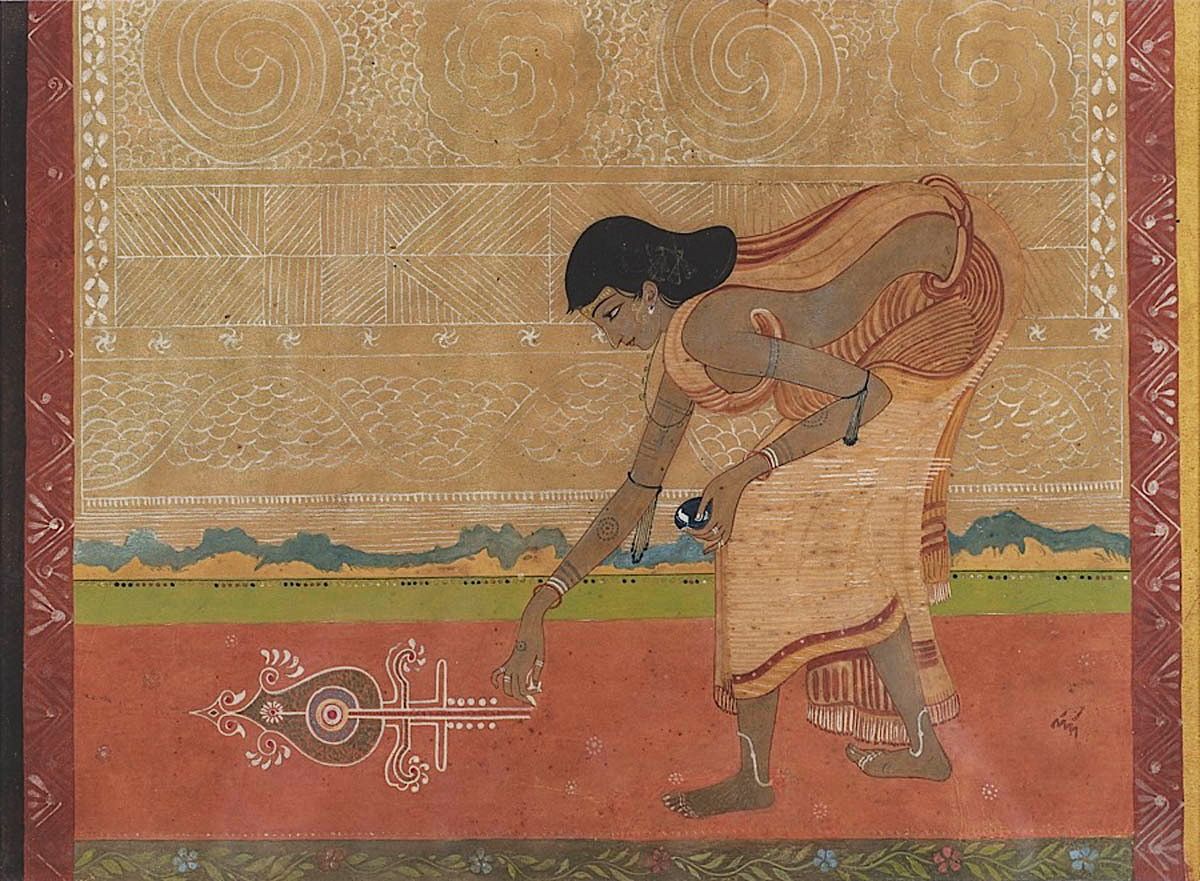
AKINO Fuku (1908–2001) was born in Shizuoka Prefecture. At twenty-one, she moved to Kyoto, where she studied under NISHIYAMA Suishō, nihonga (Japanese-style painting) artist, and submitted works to Kan-ten(government-sponsored exhibitions). In 1948, she left the Kan-ten and founded Sōzō-bijutsu (the present Sōga-kai) .She also taught at the Kyoto City College of Arts (the present Kyoto City University of Arts) from 1949 to 1974. These paintings were done during her year-long residency at Visva-Bharati University as a visiting professor at age fifty-four.
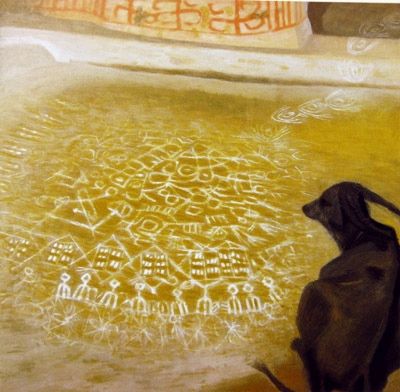
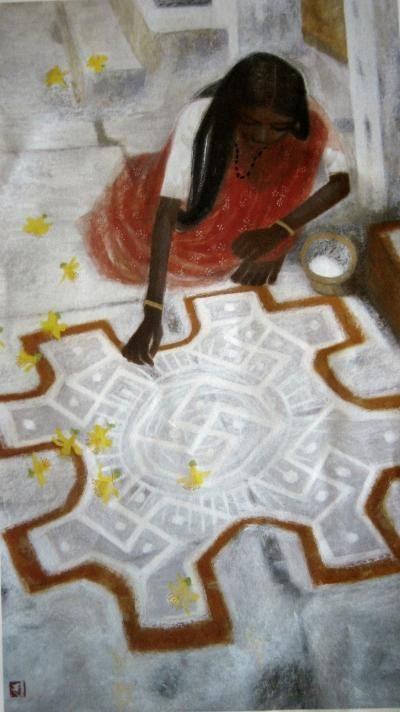
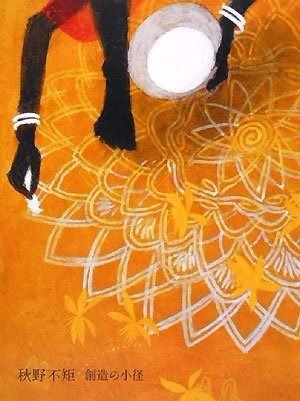
Prabhat Niyogi, “Alpona”, coloured illustration in “Prabasi” Agrahayan, 1337 Bangabda (Bengali calendar), November-December, 1930. Mukul Dey Archives, Santiniketan.
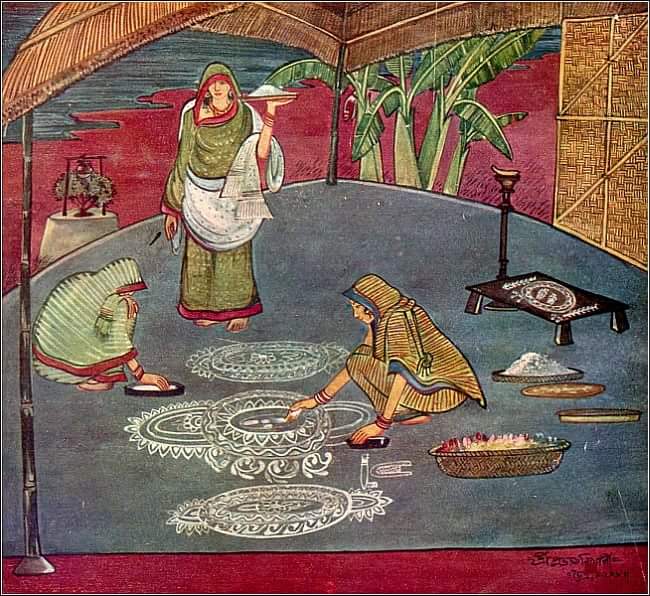
Chittaprasad Bhattacharya, "Alpona". Most recognized political artist of the mid-20th century, born in 1915. He satirized and sharply criticized the feudal and colonial systems.
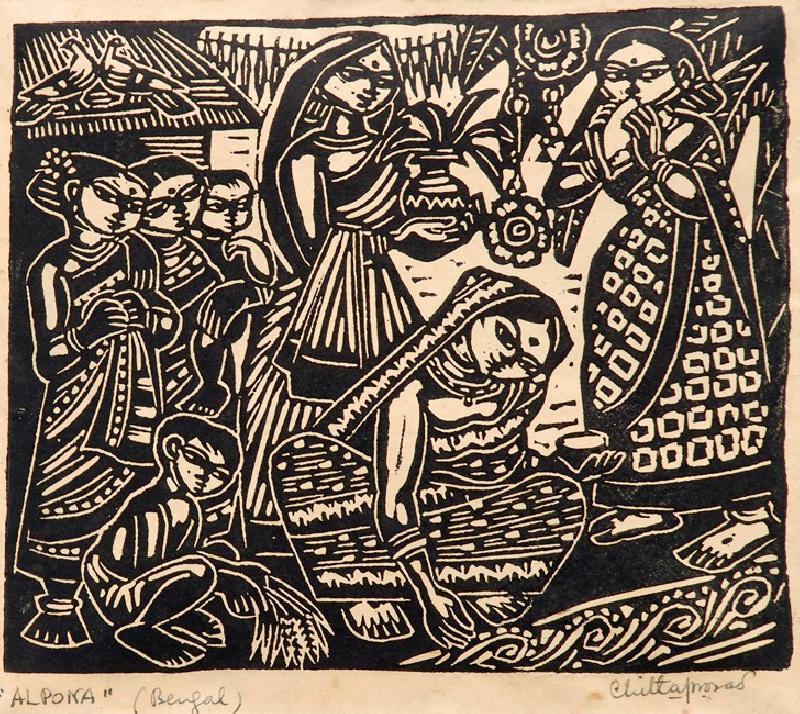
Previous articles
Bengal alpona, "The River by Jean Renoir"— part 1
Bengal alpona, "Meeting with Kolkata" — part 2
Bengal alpona, "At Sumitra’s home"— part 3

